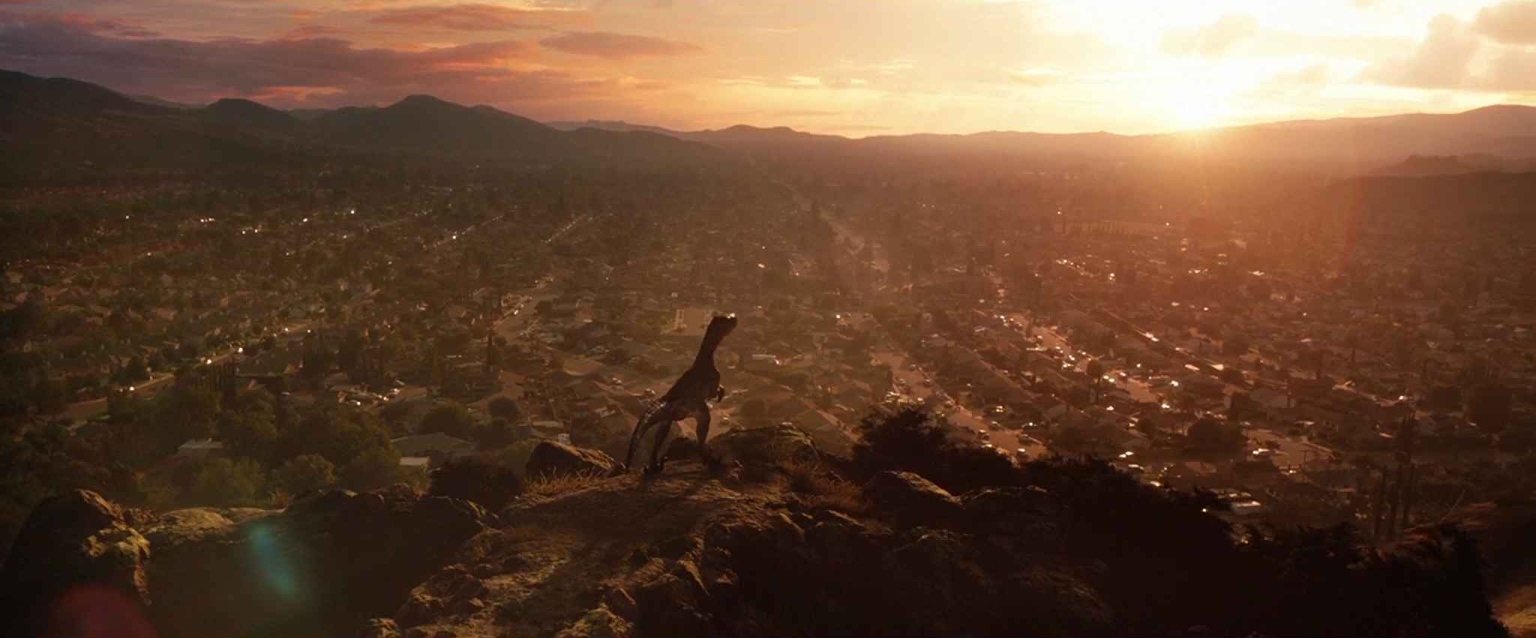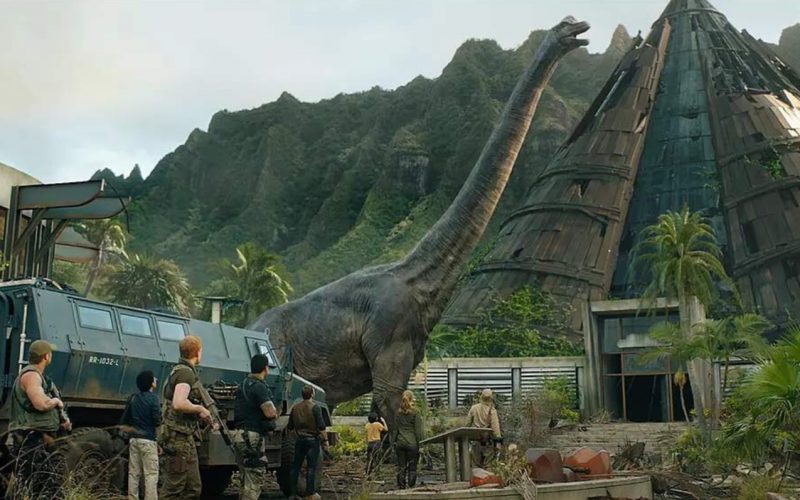Jurassic World: Fallen Kingdom (2018) – Blu-Ray Review.
Jurassic World: Fallen Kingdom finds the middle of the road with an often alarming ease. Its moments of quality are balanced by moments of, at best, mediocrity, the latter of which can be blamed entirely on its screenplay. Fortunately, unlike 2015’s Jurassic World, the film doesn’t solely rely on the charisma of and chemistry between Chris Pratt and Bryce Dallas Howard, and for that it’s arguably the superior film.
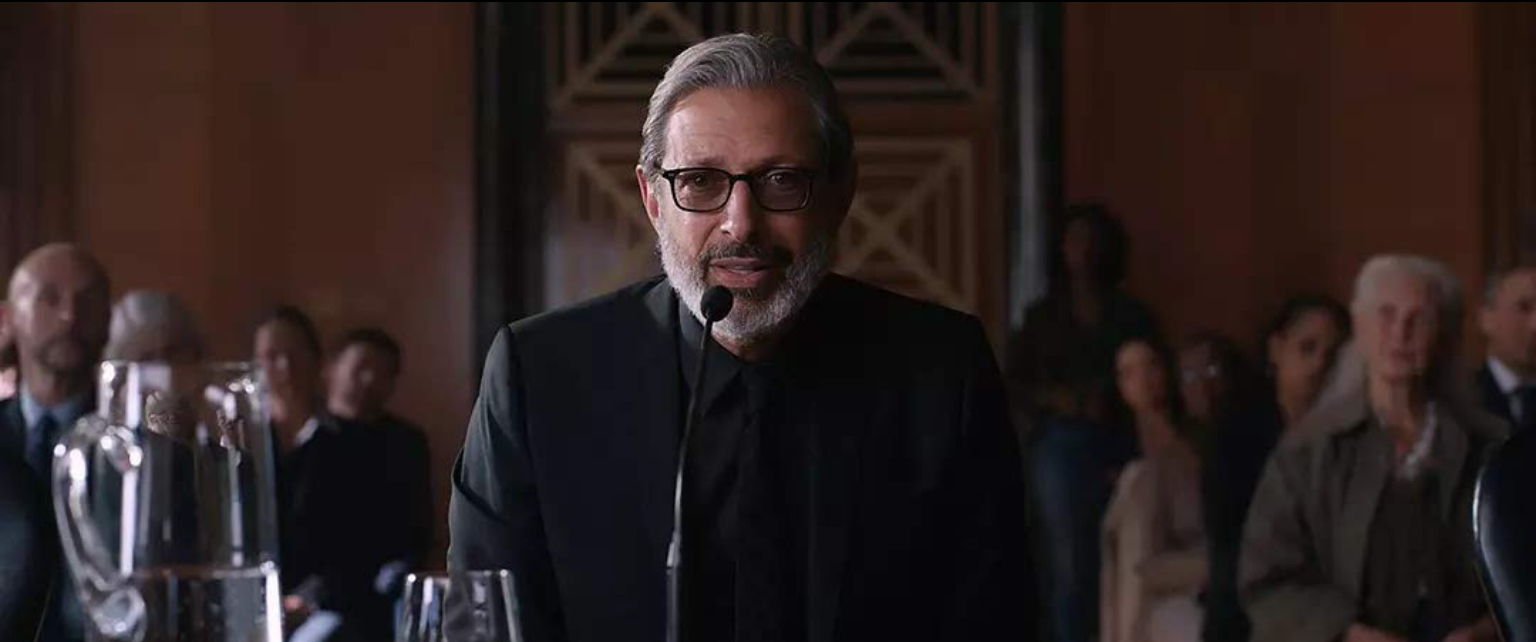
It might also be one of the better Jurassic Park films altogether, which says more about the franchise than it does about Fallen Kingdom. While there is good to be found in most of these films, the endurance of the series can be attributed almost entirely to its 1993 original. Four sequels have spawned, each with a varying balance of good and bad. J.A. Bayona comes in to direct the follow-up to Colin Trevorrow’s effort, and brings to the endeavour a definite visual style that goes in the film’s favour. There are some genuinely stunning shots in Fallen Kingdom’s two-hour run-time, and they come at regular intervals. Bayona is no stranger to creature features and his indisputable passion is clear to see. He and his cinematographer Oscar Faura’s use of shadow and light adds a gothic aura to the prehistoric picture, as the franchise brings the dinosaurs to the mainland – a move that was probably inevitable.
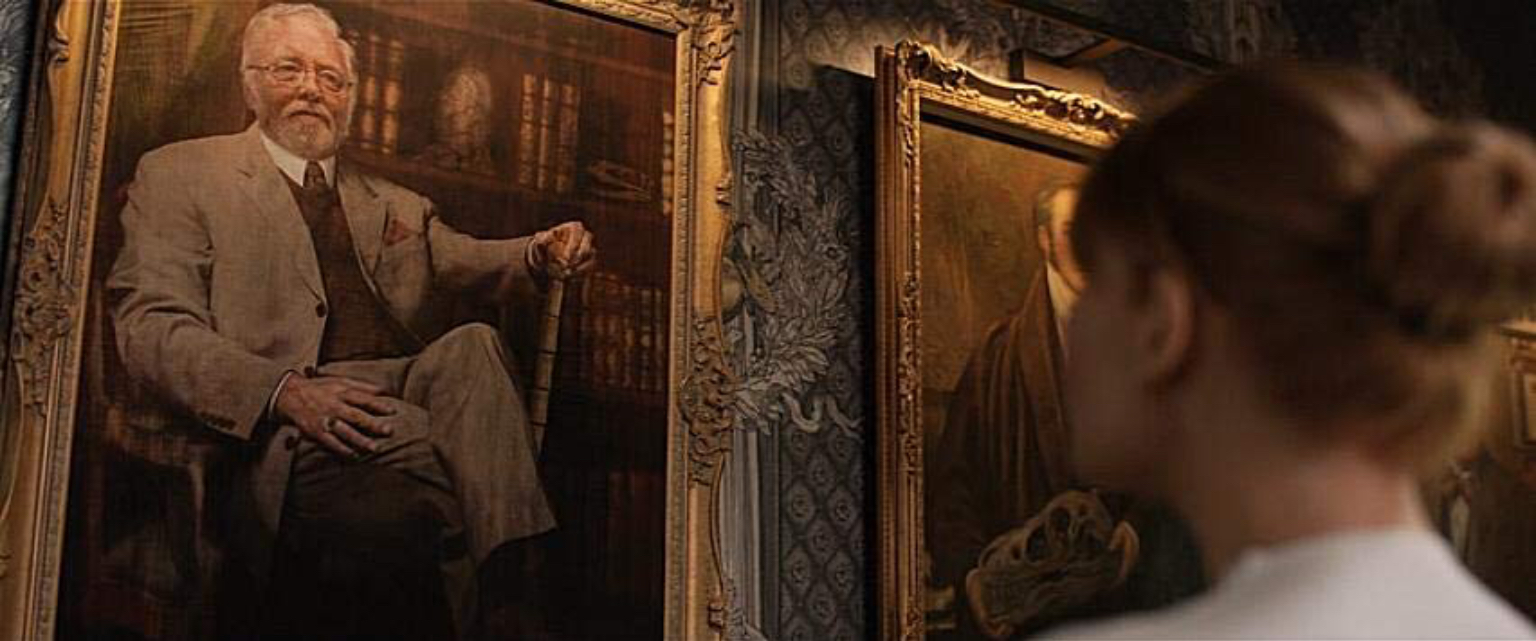
Its first half however, takes us back to the island, as a volcanic eruption looks to wipe out the dinosaurs. Claire (Dallas Howard), whose one-eighty-degree turn from stoic businesswoman and capitalist to animal rights activist is completed before the film begins, isn’t willing to let that happen. She guilt-trips Owen (Pratt) into returning to the island for the sake of Blue, the Velociraptor he trained from birth. From the moment the crew arrives on the island it’s an entertaining and brisk trip into the forest and the film roars into life with the chaotic escape demanded of our quartet of leads when the volcano turns up the heat. At this point it’s relatively easy to justify the illogicality of having Claire and Owen sent as the leading experts on the island (Owen’s connection to Blue may give him a pass, and Claire may be the only remaining sympathizer willing to do something so stupid), but that’s without addressing the two accompanying activists, Zia (Daniella Pineda), a paleoveterinarian who’s never seen a dinosaur herself, and Franklin (Justice Smith), a systems analyst, hacker and stereotypical coward in the face of danger.
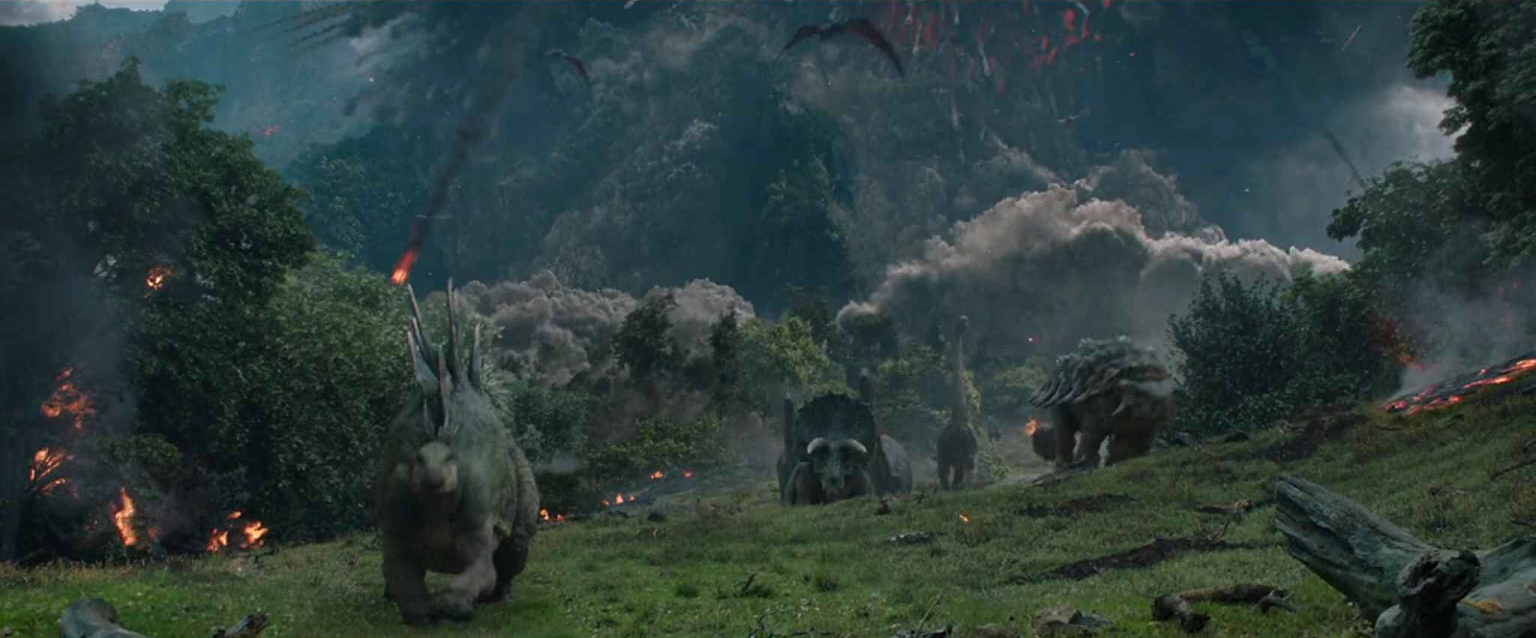
These two characters do their part on the island, but they become nothing more than a burden on the script once the film settles into its final half at Lockwood’s mansion. It’s excruciatingly easy to see how difficult writers Trevorrow and Derek Connolly found finding something for Zia and Franklin to do for the remainder of the film, much the same way Gray (Ty Simpkin) and Zach (Nick Robinson) Mitchell chewed the scenery in the latter part (or some might say the entirety) of Jurassic World. Claire’s comrades at least added some background voices to the ethical debate, though not a whole lot is done on that end either. The film again, like the previous one, seems only interested in exploring its themes so far as it gets things to the next major structural hurdle.
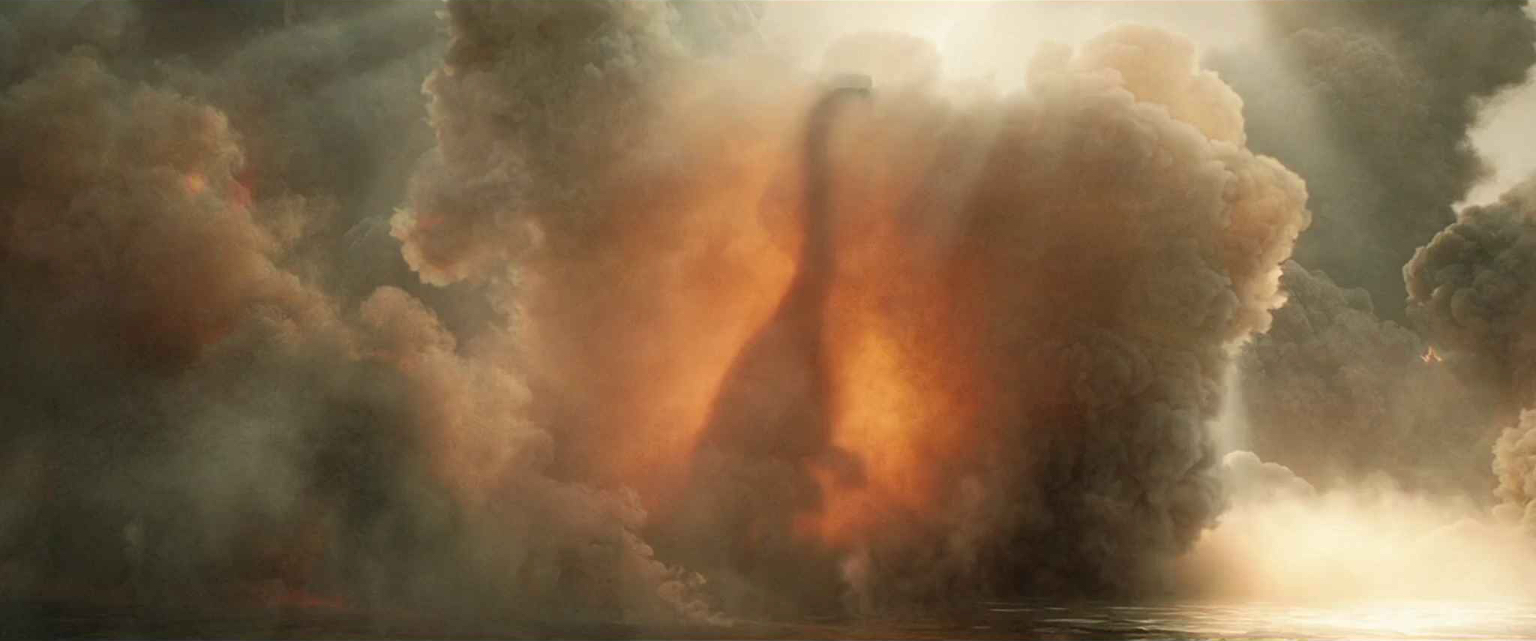
Take for example the next step in genetic development that’s introduced here in the form of Maisie Lockwood (Isabella Sermon), revealed to be not the granddaughter of John Hammond’s former partner Sir Benjamin Lockwell (James Cromwell) but a clone of Lockwell’s own tragically lost child. This is an interesting concept in a film that’s genuinely full of them. Like destroying the island home of the dinosaurs and marking a kind of end to an era in Jurassic Park films, the reveal of what Maisie is suggests something fresh and new that ultimately doesn’t really amount to much until it’s time for her to make a crucial climactic decision.
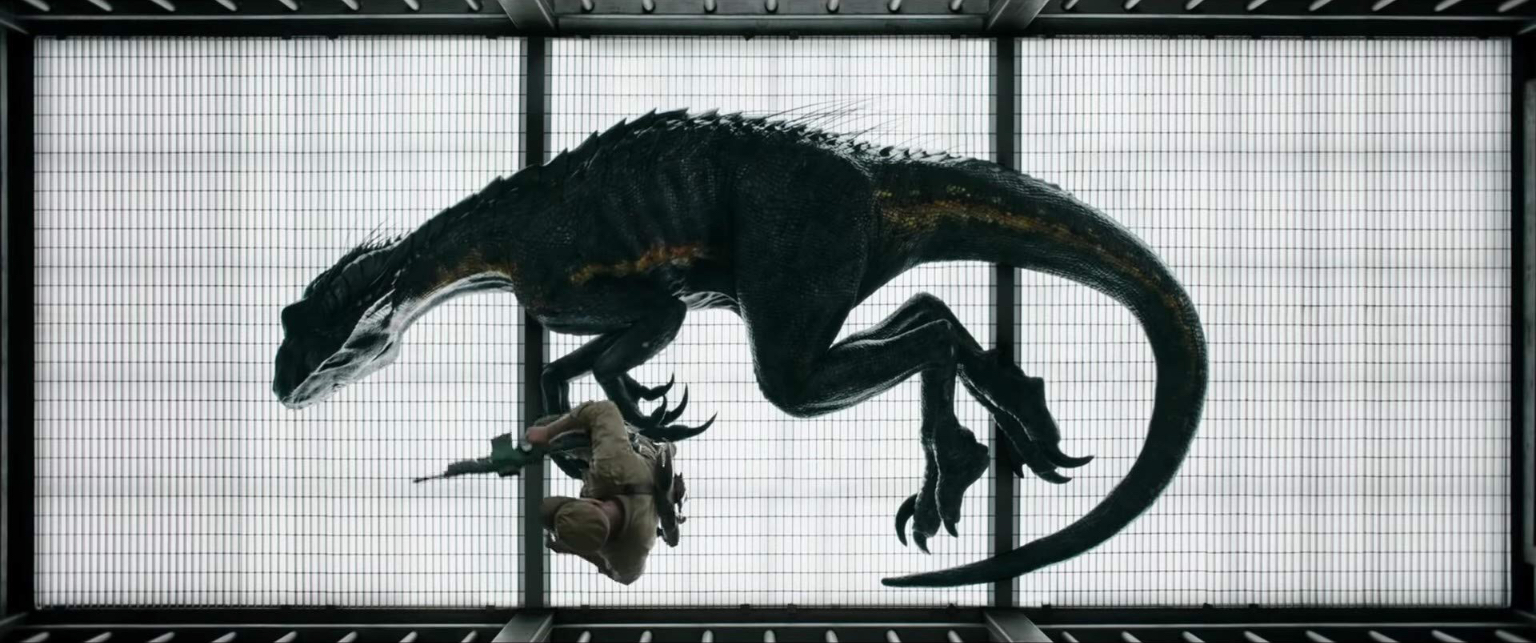
The film takes Jurassic World’s military subplot and applies it to a group of hungry billionaires as Lockwood mansion plays host to a bidding war for the species’ that the expedition rescued from Isla Nublar. It’s a messy section of the film that again brings question to the logic behind the script’s beats. You can see the intention, but eventually it just leads to an identical situation to that of Jurassic World’s, with only a scenery change to differentiate it. Yet again a new species of dinosaur is created, a mixture of Velociraptor and the Indominus Rex. It’s a wonderful design and there’s a neat balance of animatronics and CGI spread throughout the film, so many of the man-versus-dinosaur sequences are effective and immersive. The climactic battle atop the mansion’s rooftop in the teeming rain is again, stunning to look at. Bayona has crafted one of the best-looking blockbusters of the year.
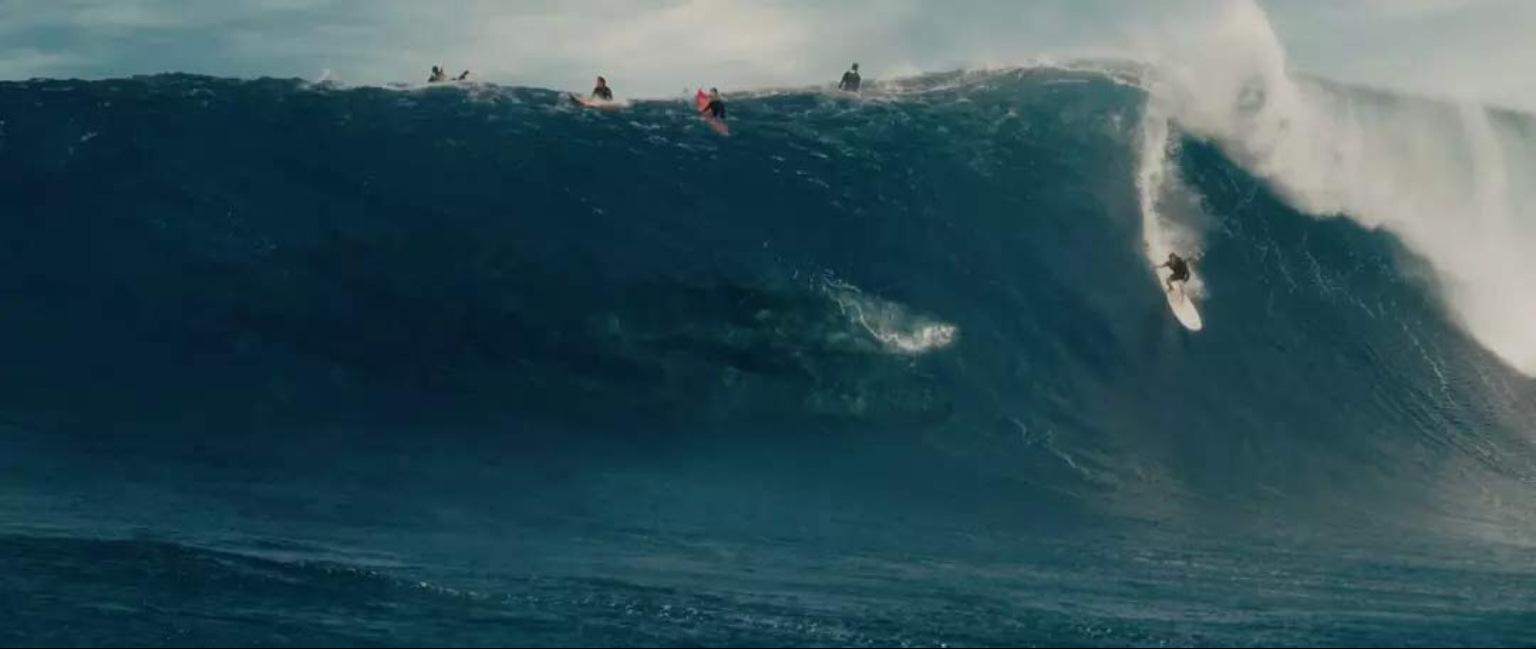
Rafe Spall is reasonably sinister as the main antagonist Eli Mills, a man who manipulates an old man to gain control of his fortune. He’s shoved to the side once the newly-created dinosaur becomes the integral focus, though that might have been for the better. Sinister and conniving though he may be, these films have always understood that the human antagonists always come second to the monsters that threaten to tear people apart. I often find though that this creates a contradiction, particularly in these most recent films, whereby characters debate the rights owed to the dinosaurs before the finale inevitably has them come up against a particularly nasty one.
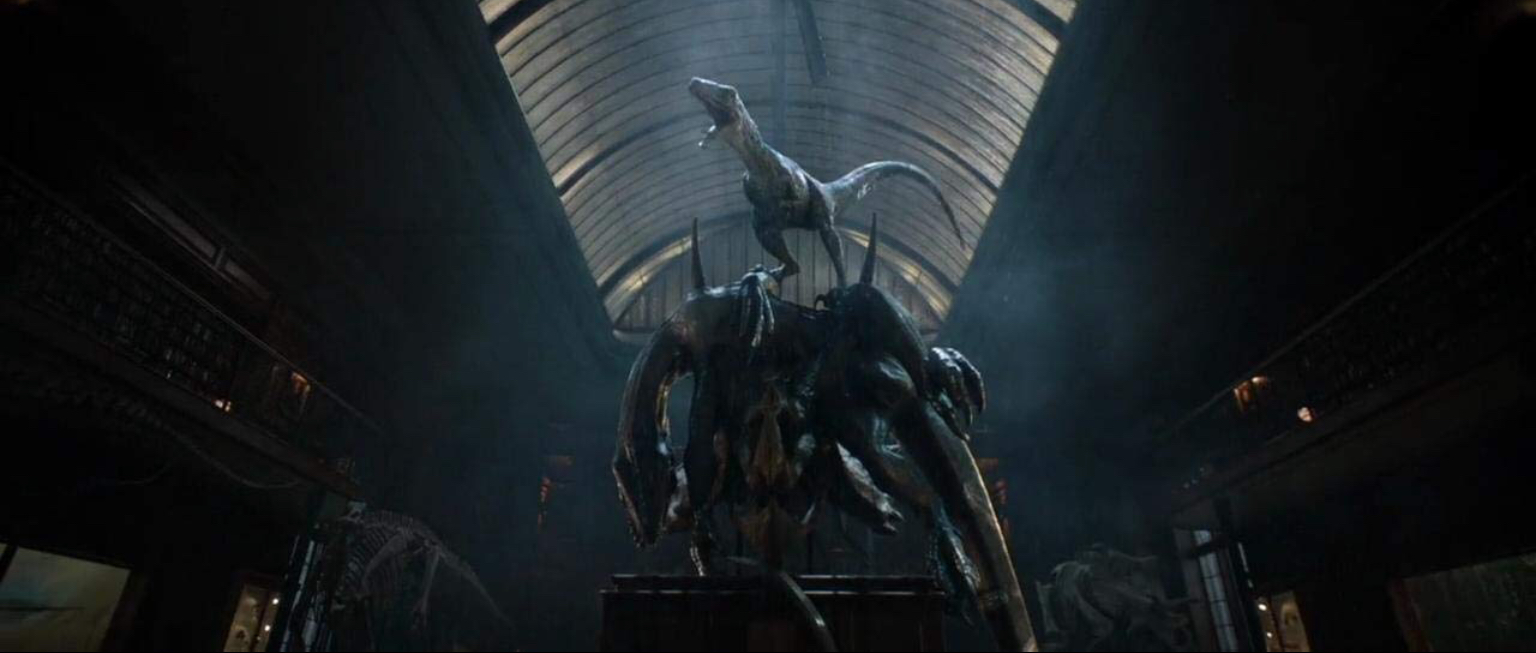
The film mostly rolls along at an enjoyable pace, for better or worse, rarely pausing to catch its breath. The prolific Michael Giacchino’s score is as distinctively his as ever, and he remixes some of John Williams’ iconic themes with a raucous energy of his own. Pratt and Dallas Howard both put in the kind of performances you’d expect, even if the beats of their relationship are pretty much identical to that of the previous film. And Bayona’s ability to rekindle some of the horror and suspense that Spielberg so expertly nailed in the original film makes for some of the best imagery in the entire franchise. The camera is almost always moving in curious ways, and when it isn’t the screen plays to our expectations to wondrous effect.
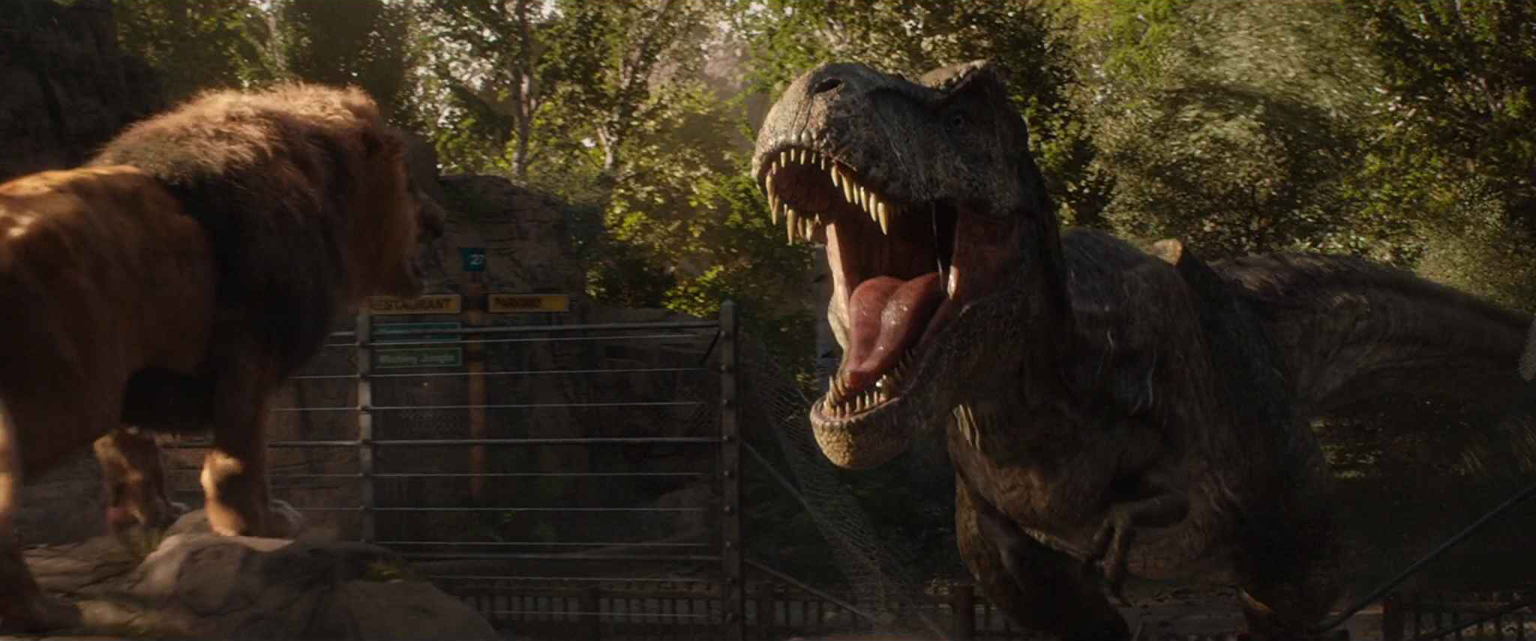
Trevorrow has been quoted as stating that this was always intended as the middle chapter in a trilogy, and at times it’s apparent that this is but a stepping stone toward the film he truly wanted to make. It essentially gets us from point A to point B, that being ‘dinosaurs on the island’ to ‘dinosaurs in our backyards’. Bayona and his leads keep it entertaining and add worth to the film, so much so that certain scenes even come close to the visual quality of the earliest Jurassic Park picture. But those parts don’t add up to a whole that’s fulfilling enough to make a third film an exciting prospect. At some point the franchise must die. If it doesn’t, it might fall too far into camp despite how desperately hard it’s trying not to already. Perhaps this trilogy can end on a high note, and we can bid farewell to a franchise that has as many detractors as it does fans. Though the hopes for a clean end to it all might be at this point far too much to ask. Jurassic World: Fallen Kingdom bore the tagline on it’s theatrical poster, “The Park is gone.” Unfortunately that tagline can be interpreted in more ways than was originally intended and stands as a reminder that you really never will recapture the magic and awe of the 25 year old original.
Film ’89 Verdict – 5/10
Jurassic World: Fallen Kingdom is available on Blu-Ray in the U.K. November 5th.
